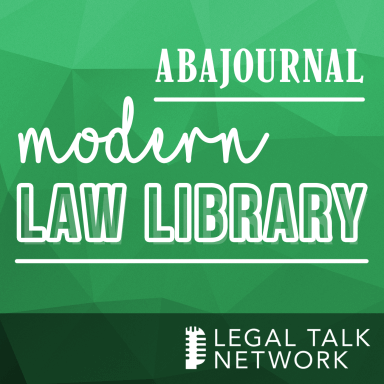Judge M. Margaret McKeown was appointed to the United States Court of Appeals for the Ninth Circuit...
Lee Rawles joined the ABA Journal in 2010 as a web producer. She has also worked for...
| Published: | September 7, 2022 |
| Podcast: | ABA Journal: Modern Law Library |
| Category: | Legal Entertainment , News & Current Events |
Justice William O. Douglas could be known for his fiery opinions, turbulent personal life and longtime presidential ambitions. But Judge M. Margaret McKeown is shining a light on his groundbreaking environmental advocacy in Citizen Justice: The Environmental Legacy of William O. Douglas—Public Advocate and Conservation Champion.
McKeown, who sits on the San Francisco-based 9th U.S. Circuit Court of Appeals, was on a hike when she came upon a cabin belonging to two friends of the justice, Olaus and Margaret Murie. Learning more about the Muries’ history as environmental advocates and preservationists brought her down the path that led to Citizen Justice, she tells the ABA Journal’s Lee Rawles in this episode of the Modern Law Library.
Seeing himself as entitled to advocate as a citizen for causes he believed in—despite his seat on the U.S. Supreme Court—Douglas did not hesitate to lobby federal agencies and the general public to protect wilderness areas from development. McKeown discusses how this could conflict with the code of ethics that she and other federal judges–but not U.S. Supreme Court justices–are bound by, and the implications for public trust.
Douglas’ childhood in Yakima, Washington, was marked by frailty and illness, but he became an avid outdoorsman and hiker in his adolescence and adulthood, keeping up a brisk clip and covering many miles per day. One of his favorite areas to hike in the Washington, D.C., area was along the disused Chesapeake & Ohio Canal. When the editorial board of the Washington Post advocated for the construction of a parkway on top of the old canal, Douglas wrote a letter strenuously objecting, and invited the editors to join him on a 187-mile hike of the length of the C&O Canal to see the wilderness he wanted to protect. It became the first of his “protest hikes,” and marked one of his favorite methods for convincing others of the importance of conservation: taking people on camping, fishing and hiking trips into wilderness areas.
A loyal New Dealer, one of the few areas of disagreement Douglas had with President Franklin D. Roosevelt was FDR’s bend towards conservation over preservation on public lands, McKeown says. She discusses the development of the conservation and environmental movements, in which Douglas was a powerful player. Douglas was the first justice to even use the word “environmental” in a Supreme Court opinion. She also delves into Douglas’ positions on Native American rights, which were supportive—unless they were pitted against the interests of fish.
Notify me when there’s a new episode!

|
ABA Journal: Modern Law Library |
ABA Journal: Modern Law Library features top legal authors and their works.